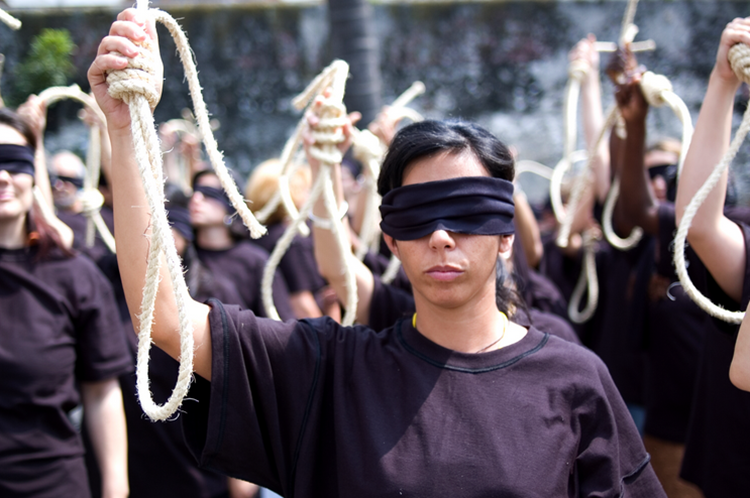
Iran Focus
London, 23 Feb – Amnesty International has released its annual report entitled “The State of the World’s Human Rights” for 2016/2017. This report is the most detailed analysis of the international human rights situation.
Regarding the situation in the Islamic Republic of Iran, the report highlighted that the people of Iran are denied the freedom of expression and the right to peacefully protest and the right to religious freedom. Prisoners in Iran are also mistreated and are denied the right to fair trials. Cruel punishments such as flogging and amputation are frequent, and women and minors are discriminated against. Furthermore, executions are carried out on a regular basis, and some are carried out in public.
Amnesty International highlighted that the Iranian authorities have been further cracking down on the right to freedom of expression. Those targeted include lawyers, students, ethnic minorities activists, human rights and women rights activists, journalists and bloggers. These people are often sent to prison for their peaceful activities and are tortured.
Musical performances have been cancelled and people attending mixed-gender parties have been flogged. Media is still heavily censored in Iran through the jamming of foreign satellite television broadcasts and newspapers and magazines have been forced to suspend publication.
More social media sites were blocked and the IRGC’s Cyber Crime Unit closed down or blocked hundreds of social media accounts. Fashion designers and people working in boutiques were particularly targeted, with the regime claiming their activities threaten “moral security”.
The report points out that a new law regarding “political crimes” was introduced in January 2016 and took effect in June. It deemed criminal all expressions it considered “against the management of the country and its political institutions and domestic and foreign policies” and made “with intent to reform the affairs of the country without intending to harm the basis of the establishment”.
The use of torture is still common in Iran. The report indicated that the use of torture during interrogation is rife and had the purpose of forcing false confessions. Prisoners have also been left in solitary confinement for prolonged periods and have been denied their right to speak to a lawyer, making torture easier.
While in prison, many detainees were denied even the most basic of health care and this was again sometimes used to make the prisoner “confess”.
In June last year, prisoner Nader Dastanpour died in custody as a result of torture inflicted upon him at a police station. No investigation was ever carried out.
The case of blogger and journalist Mohammad Reza Fathi was highlighted. He received 459 lashes after being accused of “publishing lies” and “creating unease in the public mind” via his writings.
Several prisoners in Iran are at risk of being forcibly blinded as a punishment for crimes committed. The Supreme Court obtained advice from the official Legal Medicine Organization of Iran about how such punishments could be carried out. This is a blatant breach of medical ethics.
And finally, several foreigners or dual nationality Iranians were held in the notorious Evin Prison in the country’s capital. They were allowed no or little access to lawyers, consular officials and family members. The charges against them were vague (collaborating with a hostile government, for instance) and they were not granted fair trials.


